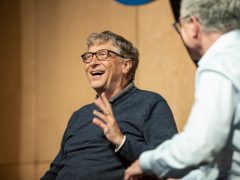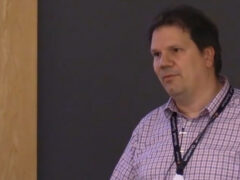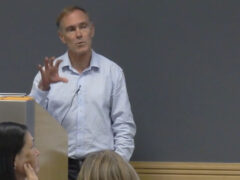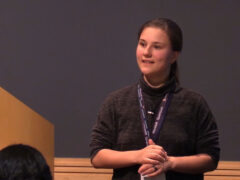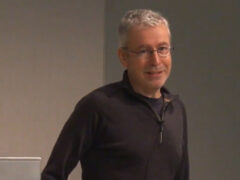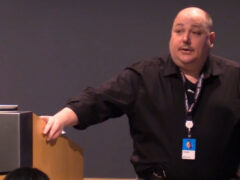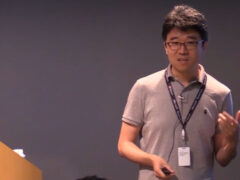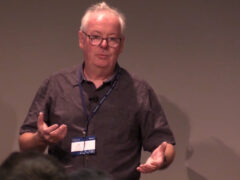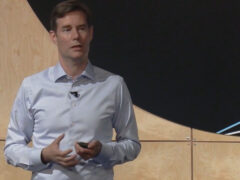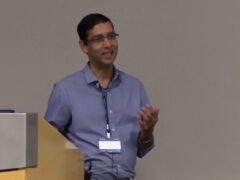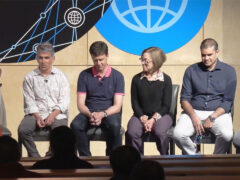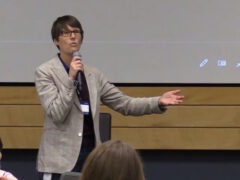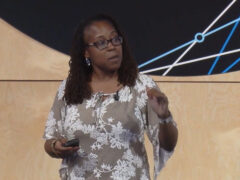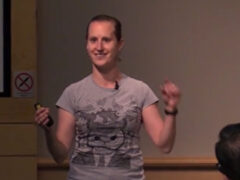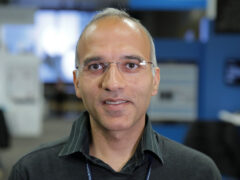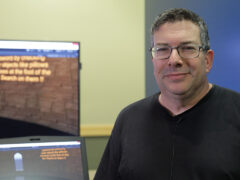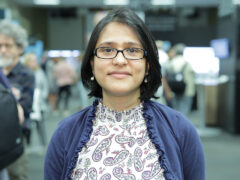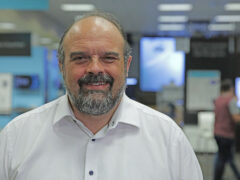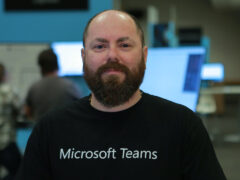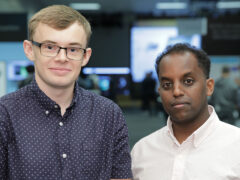From Exceptional to Everyone – Microsoft’s Efforts to Democratize Blended Learning
The promise of technology in learning has been long in coming. For decades public perception around technology’s potential to revolutionize learning has driven much of the conversation, for better or for worse. However, Microsoft is helping to accelerate this transformation with research driven tools that will increase access, efficiency, and knowledge around how best to deliver education services. This session will include a mix of new tools and research that building on evidence driven development of software that promises to democratize education around the world.
Speaker Details
Anoop Gupta is a Distinguished Scientist at Microsoft Research, focusing on cross-disciplinary projects that have potential for large business or societal impact. He is currently focusing on future of rich-media documents, collaboration, and technology as a tool for transformation in education.
From 2007 to 2009, Gupta served as corporate vice president of technology policy and strategy. From 2003 to 2007, Gupta was the founding CVP for Microsoft’s Unified Communications business (now Lync). From 2001 to 2003, Gupta was technology assistant to Bill Gates. Gupta joined Microsoft in 1997 after Microsoft acquired his startup VXtreme.
Before joining Microsoft in 1997, Gupta was a professor of Computer Science at Stanford. He has published more than 100 papers in major conferences and journals and has issued more than 65 US patents. Gupta received his Ph.D. from CMU in computer science in 1986. He holds a B.Tech. in EE from IIT Delhi, where he graduated receiving the President’s Gold Medal in 1980.
Sumit Basu is a Senior Researcher in the Machine Learning Department at Microsoft Research, Redmond. His work involves developing interactive, machine-learning based power tools to assist users in understanding and extracting insights from complex data. His current focus is on using such technologies to help human learners, teachers, and tutors at all levels with their educational goals. This is a deep and complex area, involving problems in document analysis, question generation, automatic grading, models of human memory, models of human understanding and skill level, and much more. In the past, he has worked on interactive scientific computing environments for rapid prototyping of data analysis and algorithms, intelligent tools for music authoring and manipulation, and methods for diagnosing faults in machines and datacenters, as well as a host of other topics.
Sumit received his BS (1995), MEng (1997), and PhD (2002) all from MIT in Electrical Engineering and Computer Science; his graduate work was at the MIT Media Lab. He then joined Microsoft Research, initially as a post-doctoral researcher, in 2002.
Rakesh Agrawal is a Microsoft Technical Fellow, heading the Search Labs in Microsoft Research in Silicon Valley. Rakesh is a member of the National Academy of Engineering, a Fellow of ACM, and a Fellow of IEEE. He is the recipient of the ACM-SIGKDD First Innovation Award, ACM-SIGMOD Edgar F. Codd Innovations Award, ACM-SIGMOD Test of Time Award (twice), VLDB 10-Yr Most Influential Paper Award, Computerworld First Horizon Award, NITIE Golden Jubilee Distinguished Alumni Award, and IIT-Roorkee Distinguished Alumni Award. Scientific American named him to the list of 50 top scientists and technologists in 2003.
Rakesh has been granted more than 70 patents and has published more than 175 research papers, many of them considered seminal. He has written the first and second highest cited papers in the fields of databases and data mining. His work has been featured in The New York Times “Year in Review,” The New York Times Science section, and several other publications. Rakesh is well-known for developing fundamental data mining concepts and technologies and pioneering key concepts in data privacy, including Hippocratic Database, Sovereign Information Sharing, and Privacy-Preserving Data Mining. IBM’s commercial data mining product, Intelligent Miner, directly grew out of his work. His research has been incorporated into many other commercial and academic products, prototypes, and applications.
Before joining Microsoft in March 2006, Rakesh worked as an IBM Fellow at the IBM Almaden Research Center. Earlier, he was with the Bell Laboratories, Murray Hill from 1983 to 1989. He also worked for three years at the Bharat Heavy Electricals Ltd. in India. He received the M.S. and Ph.D. degrees in Computer Science from the University of Wisconsin-Madison in 1983. He also holds a B.E. degree in Electronics and Communication Engineering from IIT-Roorkee, and a two-year Post Graduate Diploma in Industrial Engineering from the National Institute of Industrial Engineering (NITIE), Bombay.
- Date:
- Speakers:
- Anoop Gupta, Sumit Basu, and Rakesh Agrawal
- Affiliation:
- Microsoft Research
-
-

Anoop Gupta
Emeritus Researcher
-
Jeff Running
-
Rakesh Agrawal
-

Sumit Basu
Senior Principal Researcher
-
Series: Microsoft Research Faculty Summit
-
-
Quantum Computing and Workforce, Curriculum, and Application Development: Case study
Speakers:- Krysta M. Svore,
- Martin Roetteler
-
-
-
-
Crowd, Cloud and the Future of Work: Updates from human AI computation
Speakers:- Besmira Nushi,
- Vani Mandava
-
-
-
-
-
-
-
Productivity in Software Development
Speakers:- Neel Sundaresan,
- Margaret-Anne Storey,
- Prem Kumar Devanbu
-
-
-
-
-
-
-
Accessible Virtual Reality
Speakers:- Eyal Ofek
-
Calendar.help: A Virtual Meeting Scheduling Assistant
Speakers:- Pamela Bhattacharya
-
Visual Studio IntelliCode
Speakers:- Mark Wilson-Thomas
-
Microsoft Teams: Collaborate with Any Researcher Anywhere
Speakers:- Jethro Seghers
-
Project Alava: Programming Webs of Microcontrollers
Speakers:- James Devine,
- Teddy Seyed
-
AI in PowerPoint
Speakers:- Kostas Seleskerov

